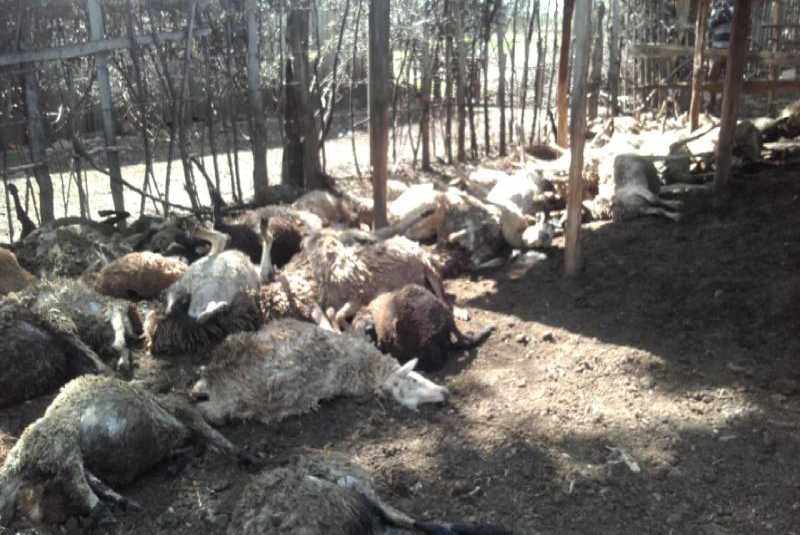×
The Standard e-Paper
Join Thousands Daily

Kenya Wildlife Service (KWS) officers count sheep carcass at a farm in Uasin Gishu county. Wild animals are ravaging the region killing thousands of sheep. [Photos: Fred Kibor/Standard]
Farmers are counting losses following attacks on their livestock by wild animals.